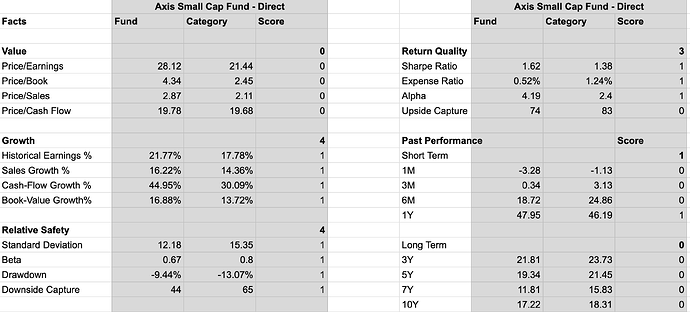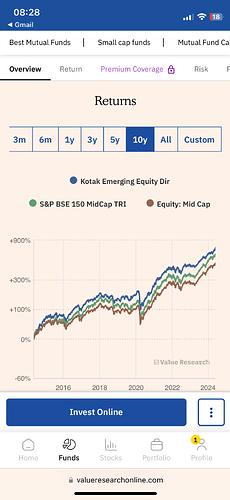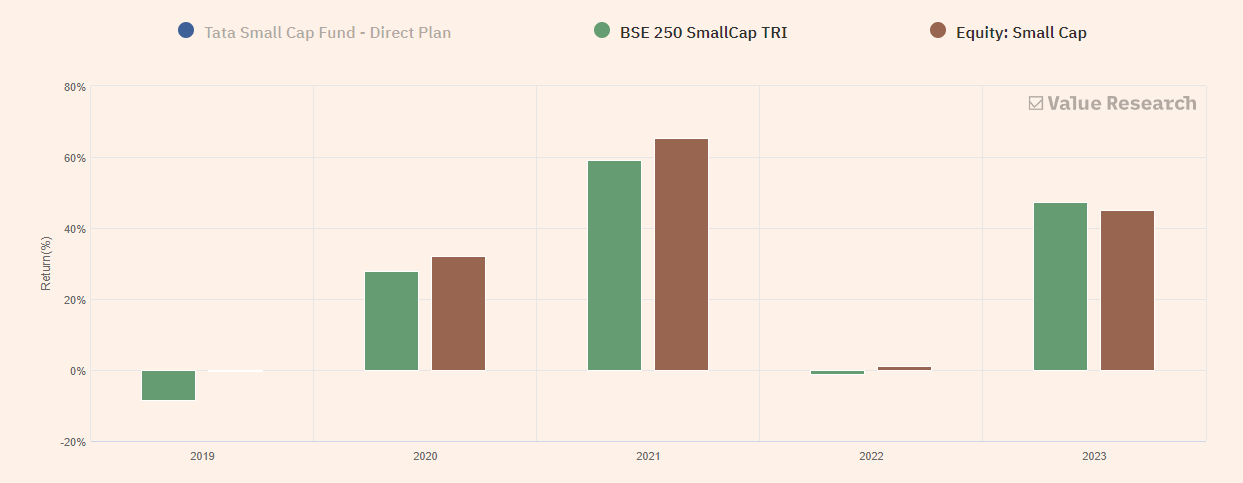Hi all, I am currently trying to develop a framework for analysing Equity Mutual Funds.
As of now, I’ve narrowed the following metrics that I will be looking at:
- Return Quality
- Relative Safety
- Past Performance
- Value
- Growth
Attached is an image of how I’ll be scoring and going about these metrics.
Would love to know if there are any additions/ changes I should be making to the model.
4 Likes
Interesting problem to solve!
Most investors look at recent past performance which imo is not the most sensible way of assessing a mf. On the contrary it’s important to know what kind of risks the manager took to deliver the outperformance. Id be happy to collaborate/contribute here. If it’s an active equity fund I’ll want to look at
- Deviation from index (constituents and %). If it’s hugging the index, I’m better off doing passive investing
- Quality of companies (debt levels, score on forensics)
- Trueness to the label (eg many value funds end up buying baap stocks due to peee pressure)
- Long term risk adjusted performance. In the short term, it’s impossible to distinguish between a lucky idiot and a skilful manager
- Performance during bad/bear markets. Personal choice - I’d rather select a fund that outperforms during bad markets.
- Size analysis - size is the enemy of returns. What’s the sweet spot here.
1 Like
You’ve made some interesting points. Will try to find out the data for all these metrics, put them in the in the same excel and share the same across.
1 Like
If I have to consider active MF I track portfolio for last 5 years and see how they mange the fund and try to read fund manger commentary on different times. Key things I look in portfolio review
- Churn rate.
- What is the holding period.
- What are its key large holding.
- Wat are its failures.
1 Like
@Girish_Kolari by churn rate do you mean the portfolio turnover ratio? Also, can you help me with the resources you use to gather these data points?
Are you going by quantitative parameters alone, or would you be adding some qualitative observations too, in the future?
Unlike a stock, which can be assessed quantitatively, particularly in the context of trading, assessing mutual funds for long term does not appear straightforward. Managers may change their views depending upon market conditions and this can impact the returns. Value oriented managers may miss rising scenarios but can be relatively better when the tide turns. Churning more based on quantitative factors like Quant does could be different. A fund manager may have caught a few stocks early on, which may have changed the returns entirely, and it may not be repeated again, his later calls may not yield as much. So there are some qualitative arguments beyond the numbers.
And if you are doing this for yourself, and if you are interested have have got time, there is a lot of information of knowledge in the forum, to do the same quantitative analysis, TA, of stocks, instead of MF, which has the possibility of delivering more returns, where you have all the control.
Churn - portfolio change internally (I consider buy and sell).
I predominantly use manual approach of looking at factsheet all AMC share monthly basis. In recent time I have seen some platforms provide this info but don’t recall name.
How about don’t? Just buy an Index fund. MF have a very poor record vs the Index and the ones that beat the index keep changing. So, why Analyse Equity MFs to begin with? Save yourself the Mental Gymnastics 
I would be very interested in how your project pans out. I feels it’s an important problem to solve. All the websites/tools I come across give a random rating and don’t explain the criteria involved.
Even if you can give some pointers on the kind of equity funds to avoid, would be a huge help 
@ChaitanyaC I wish to include something about the fund manager in the future. Assuming a world with perfect information - I’d want to see how the fund manager has performed in his career.
To your point “Value-oriented managers may miss rising scenarios but can be relatively better when the tide turns.” - ** Capture Ratios showcase this**.
While solving this problem for myself, I am working on a project around this. I’ll message you a link of the same if you’re interested.
If you can post your findings and findings here, that will help all. There are some members who are interested in mutual funds and questions about mutual funds are asked regularly.
I have some broad understanding and general view about MFs, and I would like to see your analysis, as time passes, new data comes in, new metrics can be used to analyze, thereby bringing in a fresh perspective.
Also, there is a blog called freefincal.com It has thousands of articles covering many topics both qualitatively and quantitatively. It has many tools too for analysis. If you are not aware of this, you can check, I am sure it will help your project.
1 Like
I would probably add Sortino ratio and if it’s a mutual fund that tracks a benchmark Information ratio would be ideal to understand performance of the manager.
Hey hi,
I use this frame work for my mf Selection:
- Decide risk appetite based on time period of investment and others needs and also what type of fund you are looking for.
- Filter mf which are available in market atleast for a period of 7 plus years if possible i increase this to 10 as this would help us understand how they have performed in bad times as well.
- Then i compare their performance and how many times did the fund beat the relevant index in the selected period and also since inception of the fund.
- Now i filter basis the ratios and standard deviations information that many websites provide and also check the fund manager details and his performance in other funds etc which is a manual and tiring process.
- Now i compare the expense ratio too.
Over and above that once i finalise the funds i read their mutual fund info from the amc website as many times info provided in third party websites are incorrect and then i decide where to invest.
By following the above framework
I found kotak emerging equity fund to be good for a mid (65%) and large cap (35%) fund with 0.3 expense ratio have a good track record of performance in past 10 years and provided a cagr of 21% and out performed the relevant index everytime in the 10 year time frame but as many ppl are coming into mf and mid and small cap fund i doubt any amc will be able to generate similar returns in future.
2 Likes
Hi all, apologies for not reverting earlier.
For all those who are interested in the findings, I am dropping links to the mutual funds analysed using this framework so far:
- Axis Small Cap Fund - Direct, Growth - AssetWorks | Axis Small Cap
- Nippon India Large Cap - Direct, Growth - AssetWorks | Nippon India Large Cap
- Quant Small Cap Fund - Direct, Growth - AssetWorks | Quant Small Cap
- Tata Small Cap Fund - Direct, Growth - AssetWorks | Tata Small Cap
- Bandhan Large Cap - Direct, Growth - AssetWorks | Bandhan Large Cap
- SBI Small Cap Fund - Direct, Growth - AssetWorks | SBI Small Cap
- Tata Large Cap Fund - Direct, Growth - AssetWorks | Tata Large Cap
- HDFC Mid-Cap Opportunities Growth Fund - Direct - AssetWorks | HDFC Mid Cap
- HSBC Mid Cap Growth Fund - Direct - https://assetworks.in/ytfd5
- Aditya Birla Sun Life Frontline Equity Fund - Direct, Growth - AssetWorks | Aditya Birla Sun Life Frontline
- ICICI Prudential Large and Mid Cap - AssetWorks | ICICI Prudential Large and Mid Cap Fund
- Franklin India Bluechip Fund - Direct, Growth - AssetWorks | Franklin India Bluechip
- SBI Large and Midcap Fund Growth - Direct - AssetWorks | SBI Large and Midcap Fund
Remember that the values were updated as of the report generation date so they might be outdated.
Your feedback on the same is highly appreciated. Also, I am not promoting myself here. If the mods feel that I should remove the links to the website and provide the excels of this analysis, happy to do that too.
Additionally, I took a step further and started comparing some mutual funds as well.
Have a look at the same:
- Motilal Oswal Mid Cap v/s HDFC Mid Cap - AssetWorks | Motilal Oswal Mid Cap v/s HDFC Mid Cap Opportunities
- Quant Small Cap v/s HDFC Small Cap - https://assetworks.in/0z3lf
- Tata Large Cap v/s JM Large Cap - Tata Large Cap v/s JM Large Cap
While I broadly agree with the notion that passive funds i.e. Index funds have better performance but that’s true for large caps and top mid caps I feel. When it comes to small caps since there are a lot of companies, active management might just yield better returns. Just a quick search on ValueResearch showed this:
Notice how Small Cap Equity Funds (in brown) as a collective have beaten the Index (in green).



